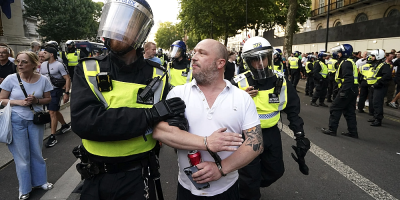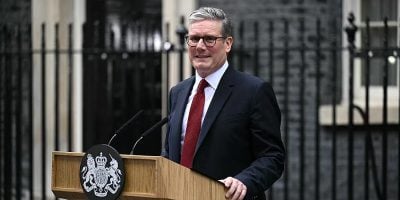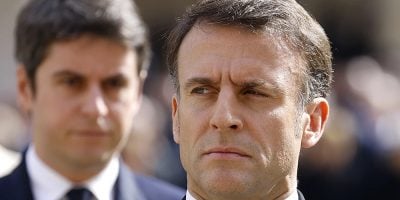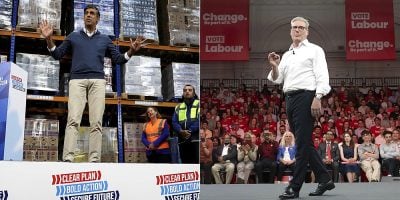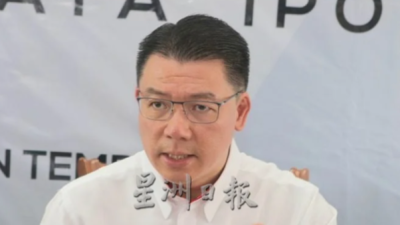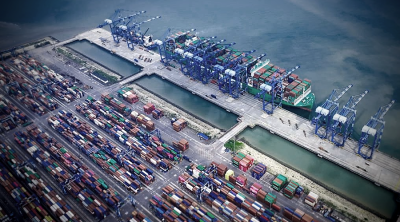LONDON: Prime Minister Boris Johnson’s Conservative party lost control of key councils in London, according to partial results from local and regional UK elections on Friday, with a potentially historic change looming in Northern Ireland.
The main opposition Labor party of Keir Starmer won control of long-term Conservative strongholds in the capital, including Wandsworth and Barnet as well as Westminster, for the first time since 1964, with around a third of English votes counted.
Results so far are not a landslide for Labor, with the centrist Lib Dems and Greens making inroads elsewhere in England, and counting from Thursday’s vote in Scotland, Wales and Northern Ireland to get underway later in the day.
Conservative Party chairman Oliver Dowden sought to play down Conservative losses and insisted Johnson was not under threat.
“I think looking at the picture of the results so far, they demonstrate that whilst there have been difficult results, they are consistent with what you’d expect with us from mid-term,” Dowden told Sky News.
The new Labor leader of Westminster City Council Adam Hug said his party’s victory was a “huge privilege”, while the leader of the Labour group in Barnet said the result was a reflection of disillusionment with the Tories.
“I think a lot of Conservatives haven’t voted this time, I think they feel alienated from No 10 and that they are, I don’t know, they’ve been disappointed with Boris Johnson and so not voting and I think that’s made a difference as well,” Barry Rawlings told the BBC.
The contest for the devolved assembly in Belfast could see a pro-Irish nationalist party win for the first time in the troubled history of the British province.
The results could have huge constitutional implications for the four-nation UK’s future, with predicted victors Sinn Fein committed to a vote on reunification with Ireland.
Poor results could reignite simmering discontent within Johnson’s ruling Conservatives about his leadership, after a string of recent scandals.
Johnson has tried to sideline the so-called “Partygate” scandal that last month saw him become the first British prime minister to be fined for breaking the law while in office.
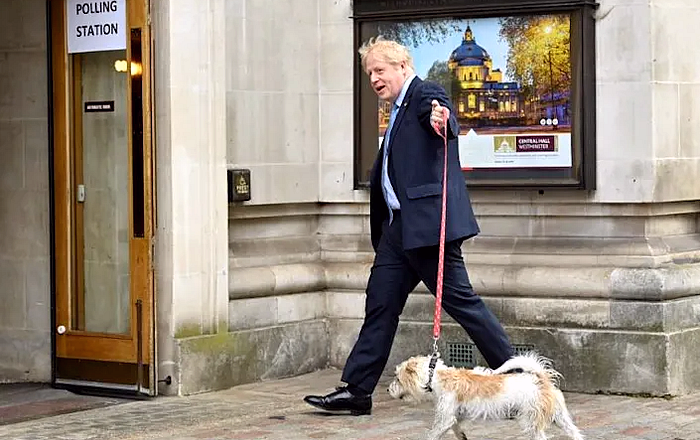
Jeopardy
Johnson, 57, won a landslide 2019 general election victory by vowing to take the UK out of the European Union, and reverse rampant regional inequality.
Despite making good on his Brexit pledge, the coronavirus pandemic largely stalled his domestic plans.
But his position has been put in jeopardy because of anger at lockdown-breaking parties at his Downing Street office and the steeply rising cost of living.
Labor is trying to make inroads across England despite defending the many gains it made at the last local elections in 2018.
The party is bidding to leapfrog the Conservatives into second place in Scotland, behind the pro-independence Scottish National Party (SNP), and remain the largest party in Wales, where 16 and 17-year-olds are eligible to vote for the first time.
‘Sea change’
The contest for Northern Ireland’s power-sharing assembly is set to capture attention, after numerous polls put Sinn Fein ahead.
A University of Liverpool poll reported Tuesday it remained on target to win comfortably with over a quarter of the vote.
The pro-UK Democratic Unionist Party (DUP) and cross-community Alliance Party were tied for second.
Deirdre Heenan, professor of social policy at Ulster University, said there was a feeling the election “really is momentous”.
“It will be a sea change if a nationalist becomes first minister,” she told AFP.
Sinn Fein — the IRA’s former political wing — has dialed down its calls for Irish unity during campaigning, saying it is “not fixated” on a date for a sovereignty poll, instead focusing on the rising cost of living and other local issues.
Party vice president Michelle O’Neill has insisted voters are “looking towards the future” with pragmatism rather than the dogmatism that has long been the hallmark of Northern Irish politics.
O’Neill’s DUP rivals have sought to keep the spotlight on possible Irish reunification in the hope of bolstering their flagging fortunes.
In February, its first minister withdrew from the power-sharing government in protest at post-Brexit trade arrangements, prompting its collapse.
DUP leader Jeffrey Donaldson has said that his party would not form a new executive unless London rips up the trading terms, known as the Northern Ireland Protocol.
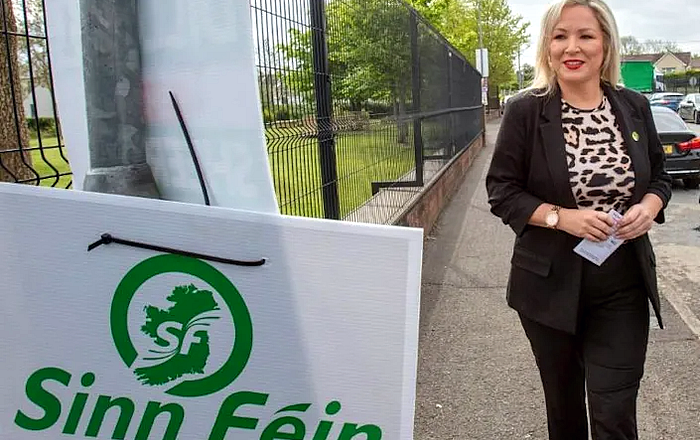
ADVERTISEMENT
ADVERTISEMENT








